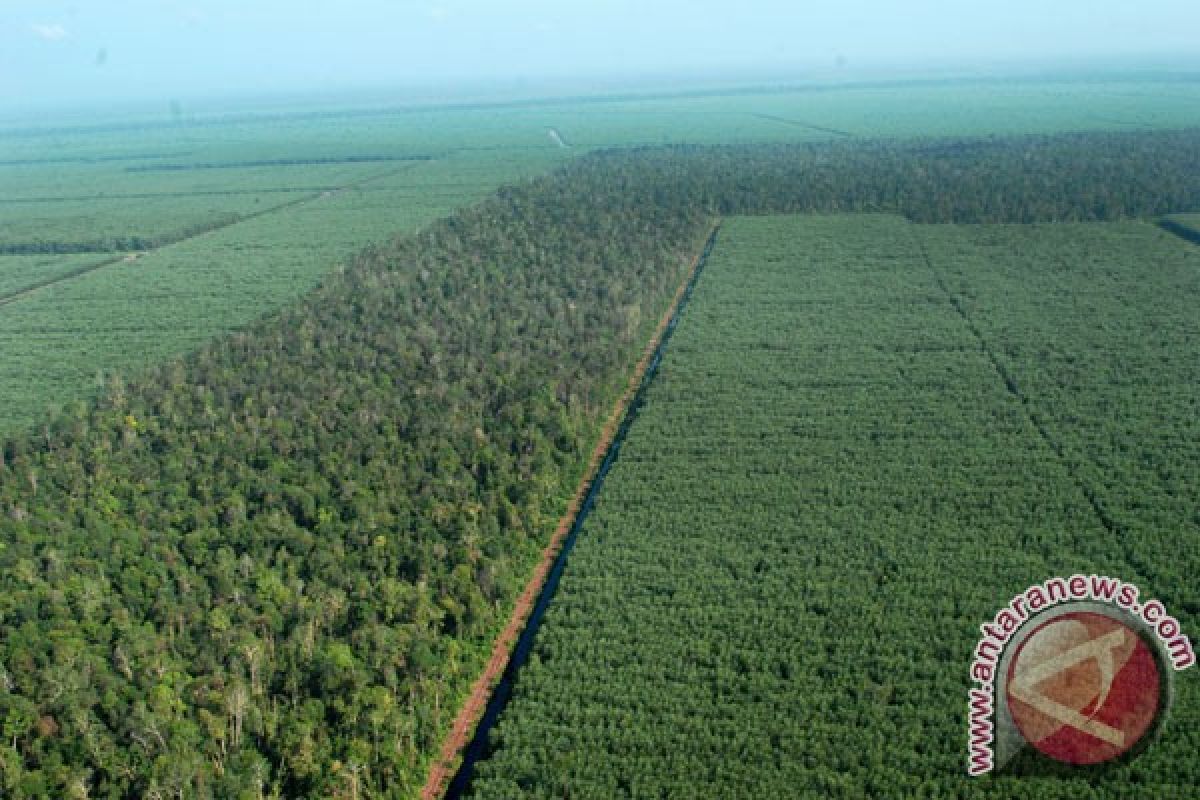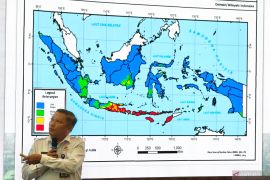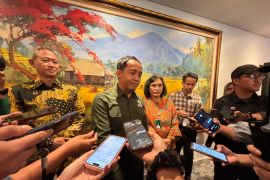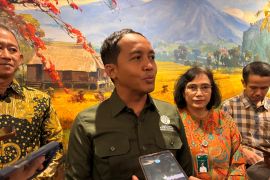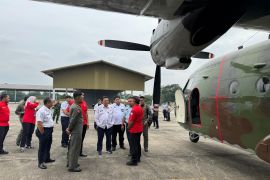"This agreement is good for the environment and good for responsible business," said the EU's Environment Commissioner.Jakarta (Antara News) - The long-waited Forest Law Enforcement, Governance and Trade - Voluntary Partnership Agreement (FLEGT-VPA) was finally signed recently by Indonesia and the European Union (EU) following six years of negotiations involving government officials, civil society, and the private sector.
Indonesia is the first Asian country and the largest timber exporter to enter into such an agreement, which aims to ensure that all Indonesian timber entering the EU market is produced legally and has passed all legal verification channels with the EU.
Four African countries---Cameroon, the Republic of Congo, the Central African Republic, and Ghana---have already signed similar agreements with the EU.
The pact is expected to help fight the trade in illegal timber, a driver of environmentally damaging deforestation in the Asian country, which has the world`s third-largest forest coverage after Brazil and the Congo.
The Indonesia-EU FLEGT-VPA was signed by Indonesia`s Forestry Minister Zulkifli Hasan; European Commissioner for the Environment Janez Potocnik; and Environmental Affairs Minister Valentinas Mazuronis, representing the Lithuanian presidency of the EU Council of Ministers, in Brussels, Belgium, on Sept. 30, 2013.
The deal, which covers a licensing system related to timber exported by Indonesia to the 28 EU member nations based on the Timber Legality Verification System, was hailed by parties engaged in environmental preservation as well as the forestry industry.
Director of the Multi-stakeholder Forestry Program (MFP) at the Indonesian Biodiversity Foundation (KEHATI) Diah Raharjo said the agreement reflected the EU`s trust in Indonesia`s forestry management and forestry industry through its application of the Timber Legality Verification System (TLVS).
Diah recalled that the TLVS, which is inspired by the 2001 Bali Declaration on Forest Law Enforcement and Governance (FLEG), was drafted by various stakeholders, including the government, academicians, and NGOs, between 2003 and 2009.
The long process toward the signing of the FLEGT-VPA was facilitated by KEHATI through the MFP, a bilateral cooperation agreement between the government of Indonesia and the British government, represented by UK AID.
"We are pleased that the FLEGT-VPA has been signed because it will help enhance the growth of forestry management in Indonesia," said Diah Raharjo.
From the industry`s perspective, the agreement reflects Indonesia`s progress in entering the European market, according to Sinarmas` Director Sandrawati Wibowo.
"We are pleased that Indonesia`s timber is being recognized by the European economic community," she noted.
Potocnik also expressed happiness that Indonesia and the EU have finally agreed to fight illegal logging and its trade.
"This agreement is good for the environment and good for responsible business," said the EU`s Environment Commissioner.
Hoping that the agreement will be implemented smoothly and successfully, EU President Mazuronis said the signing of the agreement had marked a new and significant chapter in the relationship between Indonesia and the EU.
For Minister Zulkifli Hasan, the agreement is a breakthrough and has signaled strategic cooperation between producing and consuming countries, particularly between Indonesia and the EU.
"This agreement demonstrates that both parties do not tolerate illegal logging or an illegal timber trade. It also reflects our mutual commitment to timber trade that is guaranteed by legal certification," the minister added.
Following the signing of the agreement, Indonesia and the EU will begin the ratification process for its implementation.
Indonesian Ambassador to Belgium and the EU Arif Havaz Oegroseno hailed the signing of the agreement, which has taken seven years. He hopes the agreement will be ratified by April 2014.
Indonesia`s timber must comply with EU Timber Regulation No. 995/2010, which bans illegal timber products from entering the EU`s markets, once the agreement is fully implemented.
Indonesia is Asia`s leading exporter of timber to Europe, with Germany, Britain, the Netherlands, Belgium, France, Spain, and Italy as its main destinations.
The EU imported $1.2 billion worth of timber and paper from Indonesia in 2010, about 15 percent of the country`s total exports in the forestry sector.
Minister Hasan, before leaving for Brussels last month, said the agreement was expected to contribute to the government program to eradicate illegal logging in the country.
Timber-importing countries, however, should fully accept Indonesian timber products that bear a legal certificate without restriction, he remarked.
Consumer countries are expected to refuse the import of illegal timber products, he added.
"It would be unfair if consumer countries continued to import illegal timber products when we have worked so hard to eradicate illegal logging," he explained.
Indonesia has already signed the TLVS agreement with several other countries such as the United States and Australia.
Earlier, the minister had claimed that Indonesia was ready to enter the global market with the application of the TLVS.
The TLVS certificate, which has been translated into 22 languages in the EU, indicates that the timber products were made from legally harvested logs.
The minister said last year that Indonesia had shipped timber with a V-Legal certificate to eight EU member countries to test the credibility of the system.
"Therefore, I think it is right to say that Indonesia is absolutely ready to enter the global market with its legal timber products," he stated.
KEHATI`s Executive Director MS Sembiring pointed out that most of Indonesia`s timber and furniture, which are exported, come from small and medium-scale enterprises. Therefore, the MFP-KEHATI is focused on assisting small-scale businesses, added Sembiring.
Sembiring hopes that the VPA will be implemented smoothly and that the civil society will help monitor the implementation for optimal results.
The biggest challenge for Indonesia now is to help small-scale businesses to integrate with the system, he noted.
(f001/INE )
Reporter: Fardah
Editor: Fardah Assegaf
Copyright © ANTARA 2013
